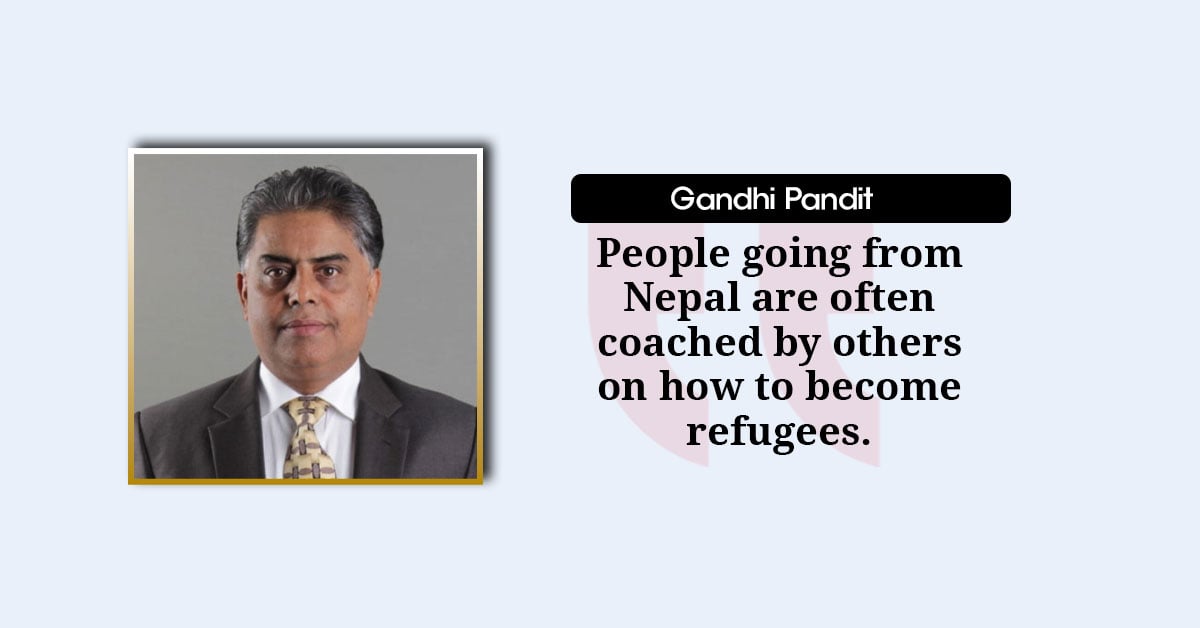

KATHMANDU: Nepalis have been seeking asylum in various countries for many years. The main reason behind this appears to be more economic than political. But becoming a refugee for economic reasons is not valid.
In order to live in another country and obtain permanent residency, even if someone is not politically active, they claim that their life is at risk in Nepal due to their political beliefs and affiliations, and therefore they seek asylum. But such claims are mostly fake and fabricated. When they say that if they return to Nepal, they will be arrested, countries like the United States, the United Kingdom, and European nations, on humanitarian grounds, provide them with protection and grant asylum.
International treaties also guarantee that people who face punishment or persecution based on political belief should not be sent back to their country. On this basis, many Nepalis file refugee applications.
Once the application is filed in the U.S., even if they are undocumented or without a visa, they obtain the facility to work legally. They are even given permission to travel to other countries, except their homeland. Nepalis have been using this loophole primarily to find work and earn money abroad. In the U.S., for example, a person with just a tourist visa cannot work. To work there, one must either have a work visa or go through marriage. Since there are no other easy ways to work in the U.S., many apply for asylum simply for employment purposes.
Some even marry just to obtain a green card, then get divorced later. After divorce, they again apply for asylum claiming political persecution. A significant number of Nepalis have been doing this. When such malpractice came to light, the U.S., Australia, and several European countries even took legal action against some of them.
People going from Nepal are often coached by others on how to become refugees. Lawyers also provide them advice for filing claims.
The typical story asylum seekers tell is that Nepal lacks political freedom, opposition is not tolerated, and that the government is dictatorial. But since these claims are not true in reality, authorities have now started discouraging such false asylum seekers. Restrictions have been tightened. Despite this, the number of Nepalis attempting to become refugees has not decreased. This has led to widespread misuse of the refugee rights provided internationally.
Previously, many Indian Muslims used to apply for asylum in different countries by claiming that they were oppressed by the Hindu majority. Nepalis also used to claim different political and religious reasons. At that time, it was somewhat easier to get asylum. But nowadays, authorities thoroughly check all evidence before making any decision. Those who fail to provide proof and are found to be using fake methods are now being sent back to Nepal.
Genuine refugees are still granted asylum, but among the Nepalis who apply, not even one percent is genuine. In other words, 99 percent of Nepali asylum seekers are fake.
(Based on a conversation with senior advocate Gandhi Pandit, who studied and practiced law in the United States)